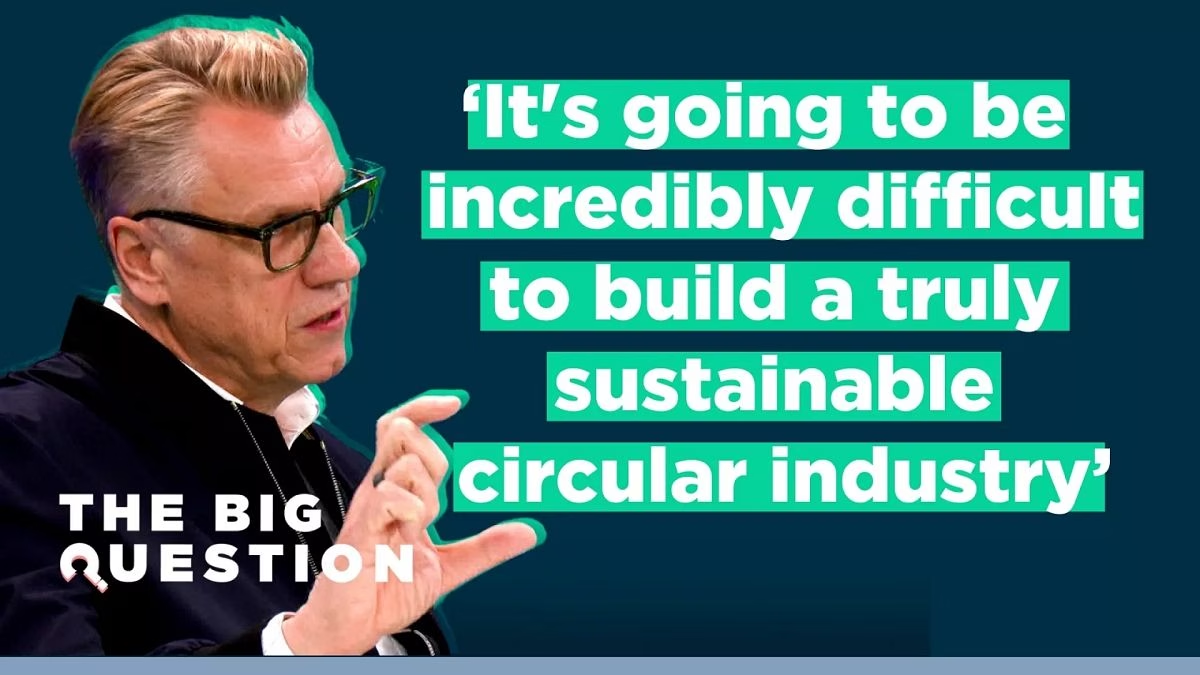Did you know that in 2023, the EU was the world’s largest importer of textiles and apparel, importing approximately €176.9 billion worth of apparel, according to the World Trade Organisation? Major importers within the bloc included France, Germany, Italy, and Spain.
Significant factors contributing to this trend are the recent surges in fast fashion, fueled by companies like Temu and Shein, which offer products at very low prices.
According to Cascale, a global non-profit alliance comprising brands, manufacturers, and retailers, European consumers purchase approximately 42 pieces of apparel per year and send about 12kg of textile waste to landfills annually.
In The Big Question episode, Cascale’s CEO, Colin Browne, discusses how textile industry emissions can be significantly reduced and emphasizes the importance of a circular supply chain, which can be achieved without sacrificing profits.
Fashion industry emissions could decrease by 45% by 2030
Cascale estimates that the global textile industry annually emits one gigaton of CO2, accounting for 6% to 8% of global carbon emissions, as per the US National Institutes of Health.
“70% of emissions in our industry come from manufacturing goods,” stated Browne.
However, Browne argued that the textile industry’s emissions can be significantly reduced through collaboration.
“Industry cooperation in addressing climate change presents a significant opportunity; uniting the industry could lead to a 45% reduction in greenhouse gases by 2030,” he said.
Implementing a circular supply chain, aimed at minimizing waste and maximizing material reuse, is crucial to achieving this goal.
“The last quarter is yet to be fully addressed. Both the industry and society must determine how to incorporate this final part of the equation,” said Browne.
Cascale aims to combat climate change and improve social justice through its Industry Decarbonisation Roadmap. This plan focuses on supply chain emissions and seeks to decarbonize global manufacturing through collaborative action and supply chain alignment.
However, Browne did not disclose specific member names within Cascale, nor did he reveal the companies leading the charge or those most responsible for perpetuating fast fashion. Despite its claims as a champion of social justice, Cascale does not include any unions among its members.
He pointed out that customers ultimately decide the production, often influenced by social media and social circles.
“You always want what the next person has,” he emphasized.
Consequently, companies primarily follow these demand signals when deciding what and how much to produce.
Being more sustainable doesn’t necessarily mean higher costs
Browne argued that companies do not necessarily need to spend more to be more sustainable, noting that industries are more likely to take positive action when they see ways to combine sustainability with profitability.
“If people can profit from it, it will happen much faster. It’s about selecting the right materials and thinking carefully about how you specify and build products responsibly,” Browne said.
He also stressed that Europe often leads in sustainability regulation, referencing “landmark legislation” from the EU that sets standards to hold businesses accountable.
However, concerns linger that sustainability reporting requirements could be diluted.
Browne warned against this, saying, “that would be a huge mistake,” and expressed Cascale’s concern, feeling that Europe has “an opportunity to lead” in this area.
The Big Question is a series from Euronews Business, where industry leaders and experts discuss key topics on today’s agenda.
Watch the video above to see the full discussion with Cascale CEO, Colin Browne.





